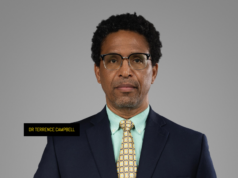Dear Editor,
The chatter on the right of prisoners to vote in General and Regional elections has died down. Although it had been reported that the Chair of the Guyana Elections Commission (GECOM) had untaken to explore the issue, the constitutional body has not issued a public statement; instead a statement from a government-appointed GECOM Commissioner informed that GECOM has decided to deny prisoners this right to vote, a right they have been denied for decades.
I was bemused by the amount of energy exerted in debating the pros and cons of this issue, when in fact no debate ought to be necessary. All political parties and stakeholders should be interested in upholding the Constitution and ensuring that the right to vote is afforded to all Guyanese, regardless of the situation that they currently are in, their location or other circumstances.
Moreover, the Guyana prison population currently only totals about 2000, which is less than half the votes needed for a parliamentary seat. So, even if all the prisoners were to vote for one party, it would not make much of a difference, except in the highly unlikely situation of a new polling division being created, called “Guyana’s Prisons”. In fact, the ballots cast by prisoners, just like those cast by the Disciplined Services, would initially be counted separately, but then integrated into the respective polling districts/divisions where these electors are registered.
Article 159 of the Guyana Constitution is clear in providing for all Guyanese citizens ‘eighteen years or upwards…’ to vote. The only barrier is as regards a conviction for ‘any offence connected with elections…’. So, even those accused persons currently before the court on election-related offences from 2020 can vote, as they remain innocent until proven guilty.
We are told that the relevant law, the Representation of the People Act (“the Act”) makes no provision for incarcerated persons to vote. In other words, it is important to note that the Act does not prohibit prisoners from voting but rather, that it does not provide for this to be done. We hear repeated references to the Constitution of Guyana being the Supreme Law of the Land; what this means is that any law inconsistent with the Constitution is not valid to the extent of that inconsistency.
Therefore, if Article 159 of the Constitution intended for all citizens, including prisoners, to vote on election day, then the silence of the Act must be deemed to be inconsistent with Article 159, and so that silence in the Act is unconstitutional. Therefore GECOM, as the enabler of National Elections, as well as the Courts, as one of the three arms of government concerned with upholding the rights of citizens, has within them the power to take necessary and urgent steps to safeguard the right to vote for all Guyanese.
But again, we are told that GECOM’s hands are tied and in the absence of a clear amendment of the Act by Parliament – which has not as yet been dissolved – nothing can be done to salvage the exercise of the right to vote of those members of the electorate who are currently in jail. Is it then game over for them? Will the Constitutional right of all Guyanese to vote not be upheld? Will prisoners be disenfranchised because of an apparent oversight on the part of the draftsman?
Here I turn to the “doctrine of necessity”, which is used in cases where an act not provided for by law is accepted as being “necessary to prevent a greater harm or preserve an essential interest”. How great is the harm of not affording prisoners the right to vote, a right afforded to all citizens by the Constitution? Is the right to vote not an essential interest for those incarcerated?
Normally, with the application of this doctrine, it is the necessity which justifies the illegality; in this case however it would be the opposite, as a measure would be taken to give legal effect as a matter of necessity, to correct an illegality and afford a constitutional right to prisoners. If this situation is left uncorrected, it would be in violation of a right afforded to all Guyanese citizens under the Constitution.
It is my respectful opinion that the logic behind applying the doctrine of necessity to the instant case would not be lost on the Chair of GECOM Madam Justice Claudette Singh S.C, a distinguished retired Justice of Appeal, nor Mr. Sase Gunraj, a distinguished member of the Guyana Bar, neither Mr. Vincent Alexander, a distinguished expert in Jurisprudence in his own right.
In contemplating this issue, it occurred to me that the restrictions which prisoners face are in effect no different from the confinement in which workers in the oil sector offshore would find themselves, come election day.
Guyana currently has three FPSO’s in operation, with an average of 100 persons on board, plus the several other drill ship(s)and support vessels. I am advised that offshore workers are rotated out in shifts and it is quite likely that a couple hundred eligible voters will be 110 miles offshore on 1 September, 2025.
It should be recalled that the last time we had a general election, first oil had been achieved about three months prior, in December 2019. It is hoped that after five years GECOM would have made arrangements for these workers not to be disenfranchised, as a result of their contribution to the oil sector on polling day.
Best practices from jurisdictions with offshore sectors such as Trinidad and Tobago could be studied and replicated here – who knows GECOM could even mount a short study tour from its massive budget to allow Commissioners a “trip” to the twin island Republic, or even further afield, to the Gulf of Mexico or West Africa. However, by the same token, a recommendation from the Carter Centre election observer team in 2020 to allow prisoners to vote, has not been acted upon.
If from the time of first oil in 2019 GECOM has been able to put arrangements in place to allow offshore workers to vote, then this would be commendable. And it would therefore beg the question why, in the similar five-year period, the 2020 recommendation from the Carter Centre regarding prisoners voting was not acted upon? If on the other hand, the offshore workers in Guyana’s oil sector are in no better position regarding the exercise of their right to vote on election day, when compared to prisoners, then this dual travesty needs to be addressed with all convenient speed.
The first option would be for the Speaker, if he is so minded, to allow a Bill to be tabled in Parliament and fast-tracked, proposing the appropriate amendments to the Act. As stated earlier, any political party that is serious about protecting the rights of voters should willingly sponsor such a Bill, for brief debate in support of provisions to allow prisoners (and offshore workers, if this has not been already addressed) to vote, and thereafter for immediate assent by His Excellency.
The alternative would be for one of our legal luminaries to file a constitutional motion on behalf of a prisoner (or an offshore worker, if this is still necessary) regarding the non-applicability of Article 159 of the Constitution and the inconsistency of the Act. The intention would be to get an expedited ruling which would find the silence in the Act regarding the right of prisoners to vote to be unconstitutional, and instructing GECOM to take urgent steps to correct this wrong.
In a case from Barbados in 2018, the CCJ met on a Sunday and ordered the Chief Electoral Officer to add a CARICOM national to the register of voters, to enable him to vote in General Elections in Barbados the next day, on pain of contempt of court proceedings for refusing so to do. Guyana’s election is just over ten weeks away.
Otherwise, the parties represented on the Commission could unite on the constitutional correctness of the need to protect the rights of all citizens and to fill this lacuna in the law by taking the necessary administrative steps. What would be required would be the cross-referencing of the PVL with the prison records to extract the names of eligible voters who are incarcerated and the preparation of voters’ lists for various centres (prisons) to be used on polling day; the same can be done from employment records for offshore workers to vote in designated areas on-site.
Other practical and logistic arrangements for the casting of ballots on polling day could be worked out with GECOM, the Guyana Prisons Service and the Guyana Police Force. Unlike with the Disciplined Services, there might not be any need for either cohort to vote in advance of the 1 September polling date, given that they are relatively few in number.
In my humble estimation, the doctrine of necessity requires that prisoners be treated for the purpose of voting in elections in a manner similar to offshore workers, so that both groups benefit from the full extent of Article 159 of the Constitution.
Yours sincerely,
Neville J. Bissember













